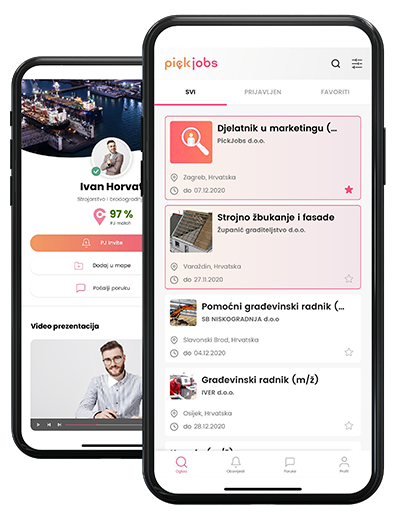Mason, carpenter, reinforcer, concrete worker, welder, facade fitter, construction elements fitter, construction machinery operator, stonemason, crane operator, carpenter, building worker, civil engineer, pipeline fitter, house painter and painter, roofer, plumber, plumber, plumber , waterproofing, metal construction fitter, ceramic tile layer, floor layer, insulator, tinsmith, locksmith, electrician, maintenance electrician, truck driver, truck driver with trailer, car mechanic, car painter, car tinsmith, leather worker, fur and leather tailor, national chef kitchens, pastry chef, baker, butcher, programmer, user interface designer and system administrator are occupations for which from 1.1.2021. in Croatia, employers no longer need to seek a labor market test.
The list was published by the Croatian Employment Service (CES) and has been valid since the beginning of this year. Namely, last year the Croatian Parliament passed a new Law on Foreigners, according to which the annual quota for the employment of foreigners is no longer determined. The law more clearly prescribes the provisions related to the entry, stay and work of foreigners in Croatia.
From the beginning of the year, employers have the obligation to request the Croatian Employment Service to conduct a labor market test before submitting an application for a residence and work permit for foreigners. However, this is not necessary for the mentioned 43 occupations.
Otherwise, the procedure is as follows. If it is determined that there are no unemployed people in Croatia who meet the requirements of employers, employers will then apply for a residence and work permit to the Ministry of the Interior, which asks the Croatian Employment Service for an opinion on hiring a foreigner with a Croatian employer. The procedure for issuing residence and work permits, including the implementation of the labor market test, and the whole process should take a maximum of 30 days.
A new long-stay visa institute, the so-called D visa, has also been introduced in the event that a third-country national is granted temporary residence due to work, family reunification, studies, research and secondary education. At the same time, it is more favorable to regulate temporary and permanent residence for members of the Croatian people with foreign citizenship or without citizenship, who have a certificate from the Central State Office for Croats outside the Republic of Croatia.
Picture source: Unsplash

 Croatia
Croatia Bosnia and Herzegovina
Bosnia and Herzegovina Serbia
Serbia Crna Gora
Crna Gora North Macedonia
North Macedonia Ukraine
Ukraine Albania
Albania Kosovo
Kosovo Austria
Austria Deutschland
Deutschland Switzerland
Switzerland









